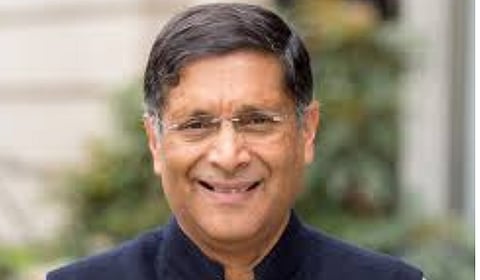

Follow TNM’s WhatsApp channel for news updates and story links.
Former Chief Economic Advisor (CEA) Arvind Subramaniam, once a strong proponent of the Goods and Services (GST) tax, has now expressed reservations, arguing that it erodes states’ fiscal autonomy and weakens the principle of cooperative federalism. His remarks came in the context of renewed discussions on whether petroleum should be brought under the GST framework.
“Over the last five years, states' fiscal sovereignty has been taken away by the GST. I had hoped that revenue performance would be good and the Union government would also act in a spirit of cooperative federalism. I am afraid to say both the revenue performance and the spirit of cooperative federalism is not as strong as it used to be,” Arvind said in an interview with India Today.
“Asking states to give up more sovereignty by bringing in petroleum under the GST would now be a tough sell and a tough ask,” he added.
Since GST’s rollout in 2017, there have been repeated calls to subsume high-revenue goods such as petroleum products within its ambit. However, under Entry 54 of the Constitution’s State List, states retain the right to levy Value Added Tax (VAT) on select petroleum products.
The debate resurfaced after Finance Minister Nirmala Sitharaman announced that petroleum products and alcohol will remain outside GST for the foreseeable future. Both categories have been deliberately excluded for eight years, given their importance as revenue streams for both the Union government (through excise duties) and states (through VAT).
Earlier in September, the GST Council approved a major round of rate cuts, reducing taxes on products ranging from shampoos and hair oil to automobiles and televisions. The Council also moved toward streamlining the structure into a predominantly two-rate system: 5% and 18%, with a 40% “special rate” reserved for tobacco and luxury items such as large cars, yachts, and helicopters.